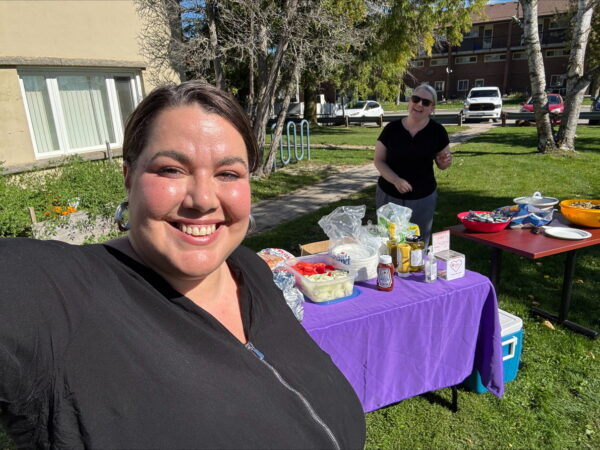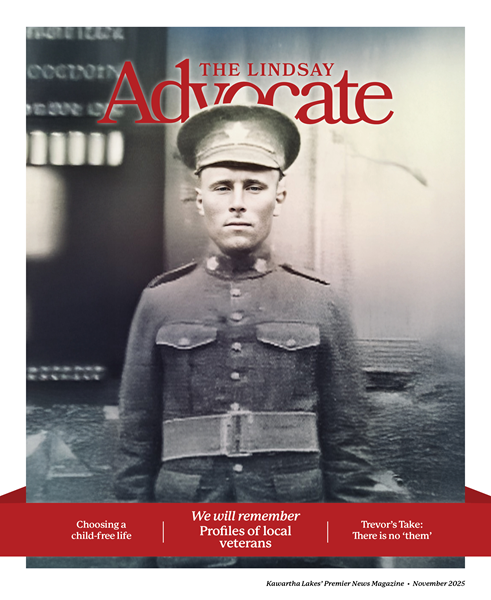Local John Howard Society holds celebration picnic

The John Howard Society Kawartha Lakes and Haliburton recently held a community barbecue and picnic blanket giveaway in Lindsay – a departure from the organization’s usual method of distributing meals.
The picnic was held at their temporary location at 50 Mary St. and was a celebration of sorts, given they were successful in getting a Kawartha Community Foundation social sustainability fund grant.
“We don’t have any picnic tables in our green space, but we gave out blankets so people could have a little picnic on the ground, old-school style, then take the blanket with them,” said Kristal Jones-Craighead, the integrated community care hub director.
“We know that some of the folks that we support are living rough, so it’s really a helpful resource as well.”
Typically, once a month, Jones-Craighead rents a commercial kitchen and makes about 200 portions of four or five different meals that meet the Canada food guide for nutrition. “Folks come in and I can heat a meal for them that’s fresh and ready to go.”
Before joining the JHS Kawarthas in February, Jones-Craighead worked in a social service role in Peterborough for three years, and though she wasn’t fully aware of the homelessness issue in Lindsay, she also wasn’t surprised by what she found.
“This isn’t a municipality-by-municipality problem, or even province by province. It’s across the entire nation right now. There’s a country-wide housing crisis, an opioid crisis, and a health care crisis, and we need to provide the social determinants of health for citizens if we want to mitigate homelessness.”
She defines those social determinants as access to health care, education, mental health support, housing, clean water, and food. The John Howard Society, with financial help from the Community Foundation of Kawartha Lakes is attempting to provide some of the determinants via “wraparound services” at their soon-to-be completed facility located at 22 Peel St.
“The Community Integrated Care Hub is a response to a series of unmet needs for vulnerable members of our community,” says Jones-Craighead.
“We know that when wraparound supports are provided, and barriers are lowered more people are able to access services, more people have some of their basic needs provided for, more people are safer.”
She says the hub aims to be a place where community can be built “and hope can be fostered,” given that “healing and recovery does not occur in vacuum, or in isolation.”
It’s something that occurs in the context of “hope, belonging and dignity.”
“That is what we aim to provide at the hub, just as much as any of our services and resources.”
“If we can provide a spark of hope, an example of kindness, a place to just be, then I think one of our most important goals will have been met. That’s why we break bread together, because what nourishes us is more than just calories, it’s community and what helps one of us sustain, benefits us all.”




